Mitchell Trubisky, Sean McVay and Calais Campbell are all employed by new teams as of the 2017 season, and while they don't have too much in common beyond that, they all make the list of the most impactful moves by every NFL team.
Here's a look at which decisions from this past spring or summer have resulted in the biggest shift for each club, along with insights on whether that impact will continue to be felt.
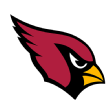
Arizona Cardinals
The move: Letting DL Calais Campbell leave in free agency
The impact: The $15 million annual price tag Campbell commanded from Jacksonville likely exceeds what the Cardinals would have paid had they made re-signing Campbell a priority. But that never seemed to be their intention. Coach Bruce Arians criticized Campbell's consistency in 2015, which seemed to tip the Cardinals' hand in negotiations. Campbell already has more sacks in a half-season with Jacksonville (11) than he had in any full season with Arizona. The Cardinals are allowing an additional five points per game for reasons that include -- but go beyond -- Campbell's offseason departure.
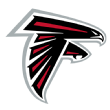
Atlanta Falcons
The move: Hiring Steve Sarkisian as offensive coordinator
The impact: Keeping Kyle Shanahan in the role wasn't an option. Hiring a replacement whose only previous NFL coaching experience occurred in 2004 was a gamble. While the Falcons realistically should have expected regression after averaging 31.6 offensive points per game under Shanahan last season, the drop to a 20.4-point average has them ranked 16th, two spots below the Jets. Is Sarkisian the man to get the offense back on track?

Baltimore Ravens
The move: Avoiding offensive skill talent in the draft
The impact: The offensive skill positions were the glaring weakness for Baltimore last offseason. The team responded by not drafting an offensive skill player in any round, a first in franchise history. The decision hurts a little more when realizing the Ravens, Patriots and Saints all picked twice in the third round when running back Kareem Hunt was still available. Those things happen in every draft -- receiver Kenny Golladay also was on the board in the third -- but the overall point about neglecting the skill positions holds. Baltimore had signed running back Danny Woodhead, who carried high injury risk.

Buffalo Bills
The move: Hiring a head coach and GM at the same time
The impact: Coach Sean McDermott and general manager Brandon Beane worked together in Carolina and arrived in Buffalo at roughly the same time, giving the Bills a level of unity and cohesion that had been lacking for years. The Bills dumped "name" talent from their roster and became more competitive at the same time, suggesting culture was a bigger problem than raw talent. Buffalo is allowing 18.6 points per game, the team's best showing at midseason since 2004. McDermott seems to be getting more from less, which usually reflects good coaching.
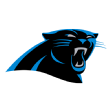
Carolina Panthers
The move: Betting on Matt Kalil to provide a significant upgrade at left tackle
The impact: A five-year, $55.5 million deal for Kalil reflected the desperation teams face when trying to upgrade their lines. Kalil missed 14 games with Minnesota in 2016 and had seen his production decline when he was on the field. He has not suddenly become Jordan Gross. Only Denver's Menelik Watson has allowed more quarterback pressures than Kalil has allowed this season, although there is time for Kalil to regain the form he showed earlier in his career.

Chicago Bears
The move: Trading up for QB Mitchell Trubisky
The impact: It's too early to know whether Trubisky will become the consistent performer Chicago sought when trading up one spot to take him second overall. The Bears lack sufficient weapons and are playing about as conservatively on offense as they could play. Is that because of the weaponry? Because John Fox is an old-school defensive coach? Because Trubisky isn't ready to shoulder more of the load? All of the above could be true. Meanwhile, Deshaun Watson's instant success (before his injury) in Houston as the 12th overall choice provides a contrast.
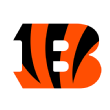
Cincinnati Bengals
The move: Letting LT Andrew Whitworth leave in free agency
The impact: Whitworth has been a stabilizing force for a Rams offense that has gone from last in offensive points per game to second behind Philadelphia. The Bengals had in past years acquired linemen to replace Whitworth and guard Kevin Zeitler, but the immediate drop-off has destabilized the entire offense. That has made it tougher for Cincinnati to realize gains it hoped to make when drafting receiver John Ross and running back Joe Mixon in the first two rounds.
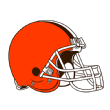
Cleveland Browns
The move: Repeatedly bypassing QBs in the draft
The impact: Cleveland could have had Trubisky, Deshaun Watson or Patrick Mahomes II with the first or 12th overall picks, only to trade away the 12th choice before taking DeShone Kizer in the second round. We haven't seen enough from Trubisky or Mahomes to know for sure they would have been worth the additional cost, but Watson's immediate emergence makes the Browns appear negligent, especially after passing on Carson Wentz in 2016.

Dallas Cowboys
The move: Moving La'el Collins to right tackle and plugging in Jonathan Cooper at left guard
The impact: Dallas made no major moves last offseason, but the Cowboys' reconfiguration of their offensive line was notable. Collins replaced the retiring Doug Free at right tackle. Cooper stepped in for Collins at left guard. We can debate whether the line is worse and by how much, but the production has been similar. Dallas has averaged 5.2 yards per rush and 7.5 yards per pass attempt with Cooper at left guard, Collins at right tackle, and the remaining 2016 starters in their usual spots. The 2016 team averaged 5.3 yards per rush and 8.2 per pass attempt with its intended starting five on the field.
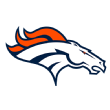
Denver Broncos
The move: Signing Menelik Watson as the starting right tackle
The impact: The Broncos are on their third head coach, third offensive coordinator and third defensive coordinator in four seasons, so the latest coaching changes deserve some acknowledgement. Improving the offensive line was still the No. 1 on-field goal of the offseason. Watson, slowed by a calf injury, has struggled when healthy enough to play, and was placed on season-ending injured reserve on Wednesday. During his time in the lineup, he led the league in pressures allowed.
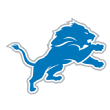
Detroit Lions
The move: Adding T.J. Lang to the offensive line
The impact: The Lions beat out the Seahawks in the bidding for Lang last offseason. While Seattle's line has struggled, Detroit has gotten good production from Lang. The signing became additionally pivotal after both Seattle and Detroit lost their starting left tackles to injuries over the summer. It's tough piecing together a line with multiple free-agent castoffs, but Lang was a higher-quality addition than most.
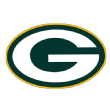
Green Bay Packers
The move: Keeping defensive coordinator Dom Capers
The impact: The 2016 Packers posted the second-worst defensive stats of the Mike McCarthy era in both points allowed and expected points added. The 2017 Packers have not improved appreciably in either category. Green Bay needs defensive personnel upgrades whether or not Capers returns for what would be a 10th season with the team, but the loyalty McCarthy has shown toward Capers remains notable.
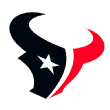
Houston Texans
The move: Bleeding draft capital for a QB makeover
The impact: The Texans sent their 2018 first- and second-round picks to Cleveland in moves that helped them unload Brock Osweiler and draft Deshaun Watson. The knee injury Watson suffered in practice last week derailed his sensational rookie season, but if Watson makes a full recovery, this trade could define both franchises for better (Houston) and worse (Cleveland).
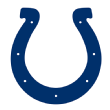
Indianapolis Colts
The move: Replacing Ryan Grigson with Chris Ballard as general manager
The impact: The change amounted to hitting a reset button, breaking a cycle of shorter-term offseason moves. Ballard embarked on a more deliberate course with no quick-fix component to his thinking. The team would not throw money at flawed free-agent offensive linemen to patch long-running problems on the right side. There would be no splash moves in free agency or the trade market, but rather midlevel purchases. If quarterback Andrew Luck needed extra time to recover from his shoulder injury, so be it. Pull up a chair because this rebuild is going to take a while.
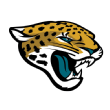
Jacksonville Jaguars
The move: Hiring Tom Coughlin as head of football operations
The impact: Coughlin has emphasized toughness and accountability through the hiring of coach Doug Marrone, the drafting of running back Leonard Fournette, the signing of DL Calais Campbell and the strict enforcement of team rules. The shift seems to be benefiting Jacksonville, which now bears close statistical resemblance to the Coughlin-coached 2007 Super Bowl Giants. Both teams also had fourth-year quarterbacks with questionable accuracy and underwhelming career numbers (Blake Bortles' completion rate, yards per attempt, touchdown-to-interception ratio and passer rating are better than Eli Manning's were through the same number of games -- just saying).
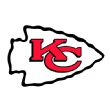
Kansas City Chiefs
The move: Trading up to draft QB Patrick Mahomes
The impact: The Chiefs parted with a 2017 third-round pick and a 2018 first-rounder to move up 17 spots for Mahomes. The move gave them their quarterback of the future and immediate insurance if Alex Smith struggled or got injured. Smith, struggle? He has 18 touchdown passes with one pick while ranking first in passer rating (113.9) and seventh in Total QBR (62.8). Mahomes' addition apparently got his attention.
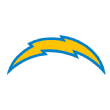
Los Angeles Chargers
The move: Signing Russell Okung to play left tackle
The impact: The Chargers were one of the teams that paid a premium price for an offensive tackle with an underwhelming recent track record. Okung has played well enough to justify the investment, bringing needed stability and production to the line. Some of the other big changes -- mostly to the coaching staff -- remain harder to evaluate. Okung has a chance to prove skeptics wrong.

Los Angeles Rams
The move: Hiring Sean McVay as head coach
The impact: The Rams made a series of moves to improve, adding veteran stability to their offensive line and weapons in the receiving game, but bettors were not rushing to bet their homes on quarterback Jared Goff suddenly becoming highly productive. McVay has brought it all together in a way that has helped Goff improve and sometimes even shine. The Rams are averaging 29.1 offensive points per game, second only to the Eagles this season and the best for a Rams team since the 2001 Greatest Show on Turf era team. That is up from a league-worst 13.6 last season.
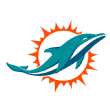
Miami Dolphins
The move: Paying $7 million a year to re-sign LB Kiko Alonso
The impact: Alonso's injury history made this move appear risky. The Dolphins saw it as a hedge against having to pay much more if Alonso were to reach free agency in 2018 following a productive season. Keeping Alonso was part of a broader push to invest in the defense. The Dolphins are improved in points per game allowed and defensive expected points added.

Minnesota Vikings
The move: Spending big to address the offensive line
The impact: Left tackle Riley Reiff and right tackle Mike Remmers were the veteran additions Minnesota targeted to stabilize an offensive line that struggled in 2016. The moves have paid off better than some evaluators expected (though some still aren't convinced). The Vikings are averaging 120 yards rushing per game and 4.0 yards per carry, up from 75.3 rushing yards and 3.2 yards per carry last season. The sack rate has dropped from 6.5 percent to 3.6 percent, even though Minnesota is throwing longer passes and taking more time before the pass on average.

New England Patriots
The move: Acquiring WR Brandin Cooks from New Orleans
The impact: The Patriots sent the 32nd and 103rd picks in the 2017 draft to the Saints for Cooks and the 118th overall choice. Cooks is on pace to finish with 66 receptions for 1,126 yards and six touchdowns. His 17.1-yard average per reception is a career high. Cooks has quickly earned acclaim from quarterback Tom Brady and seems to be a good fit for the Patriots overall.

New Orleans Saints
The move: Drafting cornerback Marshon Lattimore with the 11th overall pick
The impact: The Saints had tried for years to upgrade their secondary at significant cost, with mostly disappointing results (remember Jairus Byrd and Brandon Browner?). Lattimore has changed their luck. The NFL's defensive rookie of the month for October has immediately become a solid No. 1 corner, a big reason why the Saints' defense has improved sufficiently for the team to reemerge as a threat in the NFC.

New York Giants
The move: Drafting a receiving tight end in the first round
The impact: Evan Engram has a touchdown grab in each of the Giants' past three games. He should be a long-term contributor and a good pick ultimately. Yet Engram did have the look of a luxury pick for a team that needed muscle while already possessing elite receiving personnel in Odell Beckham Jr. Drafting Engram arguably completed the Giants' transformation from a physical, balanced team under Tom Coughlin years ago to a one-dimensional finesse team under Ben McAdoo.
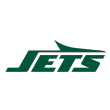
New York Jets
The move: Signing QB Josh McCown
The impact: The Jets were among the teams that passed on Deshaun Watson and the other quarterbacks available early in the 2017 draft. McCown has outperformed expectations with 13 touchdown passes, seven picks, a 96.1 passer rating and a 19th-ranked Total QBR of 50.9. He's one reason the Jets have surprised with a 4-5 record this season, but the better he plays, the harder it could be for the Jets to draft their next quarterback.
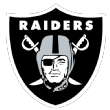
Oakland Raiders
The move: Going against expectation at the coordinator spots
The impact: The Raiders were much better (and more talented) on offense than defense last season, which is why it seemed surprising for them to fire offensive coordinator Bill Musgrave while making no corresponding change on the defensive side. By replacing the experienced Musgrave with first-time NFL coordinator Todd Downing, the Raiders indicated they saw Downing as a young talent on the rise -- one they needed to promote before he slipped away to another team. It has been a bit of an adventure on offense with quarterback Derek Carr missing time due to injury and the line adapting to a shift in blocking schemes built around running back Marshawn Lynch. The defense is best known for collecting zero interceptions through nine games.

Philadelphia Eagles
The move: Signing receiver Alshon Jeffery to a one-year, $9.5 million deal
The impact: The 8-1 Eagles have gotten all the offensive contributions they've needed from a variety of sources, including six receptions for 84 yards and two scores from Jeffery against Denver on Sunday. That's why there's no stress over Jeffery's unspectacular statistical contributions to this point. His nine-game totals for receptions, receiving yards and reception rate mark career lows in the four seasons when he played in his team's first nine games. So, too, do his two receptions on passes traveling 20-plus yards past the line of scrimmage (he averaged six per season through nine games from 2013-16).
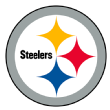
Pittsburgh Steelers
The move: Selecting linebacker T.J. Watt in the first round
The impact: Watt has four sacks, four passes defensed and an interception in his first seven NFL games, providing immediate impact for a team that ranks second in points allowed, third in defensive expected points added and third in Total QBR allowed.
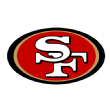
San Francisco 49ers
The move: Not drafting a quarterback in the first round
The impact: The 49ers' decision to not draft any of the quarterbacks available until taking C.J. Beathard in the third round set an early course for the organization under general manager John Lynch and coach Kyle Shanahan. The 49ers wound up trading for Patriots backup Jimmy Garoppolo following an 0-8 start to the season. They still could be in the mix for Washington's Kirk Cousins or a current college quarterback. None of these options would seem as realistic if the team had drafted Mitch Trubisky, Deshaun Watson or Patrick Mahomes in the first round.
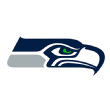
Seattle Seahawks
The move: Trading for DL Sheldon Richardson
The impact: Acquiring Richardson from the Jets for a 2018 second-round choice and receiver Jermaine Kearse signaled urgency for the Seahawks as their championship window narrows. The team doubled down during the season by trading additional picks to Houston for 32-year-old left tackle Duane Brown. The Richardson trade has helped the defense, but it's not yet clear whether Seattle will re-sign him for the long term. What is clear, increasingly, is that the urgency is running high for this team, this year.
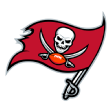
Tampa Bay Buccaneers
The move: Accepting HBO's offer to appear on "Hard Knocks"
The impact: The team's appearance on the annual show highlighting the dramas of training camp seemed like a victory lap following an exciting offseason. The Bucs had added DeSean Jackson in free agency. Tight end O.J. Howard had fallen to them almost magically in the draft. Quarterback Jameis Winston eagerly anticipated taking a big step forward in his third season, and the audience played along. In hindsight, the Bucs might have been better served setting a businesslike tone instead of gleefully hopping into the front car of Winston's emotional roller coaster, arms thrust skyward.
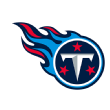
Tennessee Titans
The move: Using the sixth overall pick for WR Corey Davis
The impact: The three wide receivers drafted among the top 10 in 2017 have combined for 11 receptions, which means Davis is not alone in his lack of production. A hamstring injury has limited him to three games, with two starts. Davis has nine catches for 101 yards and no scores. Should the Titans have taken running back Christian McCaffrey, cornerback Marshon Lattimore, defensive end Jonathan Allen or someone else instead? It's far too early to answer such a question, but never too early to ask.

Washington Redskins
The move: Firing GM Scot McCloughan
The impact: The move and how it was handled made the Redskins look like a team mired in dysfunction. The Redskins seemed to steady themselves as the offseason progressed, with Doug Williams assuming more responsibility in personnel decisions following a promotion. The team remains without a general manager in title, however, which means the Redskins are set up largely the way they were set up before McCloughan's hiring, with Bruce Allen in a prominent role as team president.
